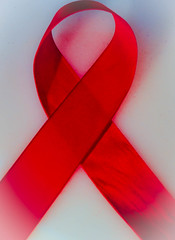 Image by sassy mom via Flickr
Image by sassy mom via FlickrThis World AIDS Day, as the United Nations Global Commission on HIV and the Law draws up its final recommendations, the Global Forum on MSM and HIV (MSMGF) urges national legislators around the world to review and repeal laws that undermine access to HIV services for gay men and other men who have sex with men (MSM). To help illustrate the connection between HIV and the law for this key population, the MSMGF has launched a new collection of resources that features case studies, toolkits and never-before-seen video testimonials from grassroots MSM advocates in Uganda, Zimbabwe and Cameroon.
“From laws criminalizing homosexuality in more than 70 countries to laws punishing non-disclosure of one’s HIV status, punitive legal environments around the world prevent MSM from accessing life-saving services,” said Dr. George Ayala, Executive Officer of the MSMGF. “This is a major problem for the HIV response among MSM around the world, in countries rich and poor alike.”
The content of the archive was selected to make clear the connection between HIV and the law for this highly-impacted population, as well as provide grassroots organizations with tools to aid in legal advocacy for the health and human rights of MSM.
“Civil society has formed the backbone of the response to the HIV epidemic among MSM around the world, with local men rising up to care for their own communities where support from government and society is lacking or absent,” said Krista Lauer, Policy Associate at the MSMGF. “This archive is part of a larger effort to equip grassroots organizations with the information and resources they need to hold governments and multilateral institutions accountable for doing quality HIV work, including addressing harmful laws.”
The website features the MSMGF's Specialist Submission to the Global Commission on HIV and the Law, made public for the first time. Drawing upon focus group interviews, published research and other sources, the report makes five recommendations for law-based action that would have a game-changing impact on the HIV response for MSM:
- Review and repeal laws that undermine the HIV response among MSM
- Address the inappropriate enforcement of laws that hinder access to HIV services for MSM, through coordination, education and training with the judiciary and law enforcement officials
- Establish laws that protect the health and rights of MSM, and bring perpetrators of violence and other human rights abuses against MSM to justice
- Implement know-your-rights campaigns, and create enabling environments in which individuals can lay claim to their rights
- Integrate the law as a core pillar in all National AIDS Reponses, and adopt a rights-based approach to the HIV response
“We know that laws and policies that uphold the human rights of gay men and facilitate their access to services are absolutely essential for an effective HIV response,” said Dr. Ayala. “But real action to transform legal environments has been bogged down by fear, stigma, and a lack of political will to take on the tough issues. Courageous activists have continued to raise their voices in this struggle, often at great personal expense to themselves and their families. We call on all Member States of the United Nations to heed the call of civil society, and recognize that the human rights movement is the HIV movement.”The online archive can be accessed on the MSMGF’s website at http://www.msmgf.org/law.
The Global Forum on MSM and HIV (MSMGF) is an expanding network of AIDS organizations, MSM networks, and advocates committed to ensuring robust coverage of and equitable access to effective HIV prevention, care, treatment, and support services tailored to the needs of gay men and other MSM. Guided by a Steering Committee of 20 members from 18 countries situated mainly in the Global South, and with administrative and fiscal support from AIDS Project Los Angeles (APLA), the MSMGF works to promote MSM health and human rights worldwide through advocacy, information exchange, knowledge production, networking, and capacity building.








 Join our page
Join our page


0 comments:
Post a Comment